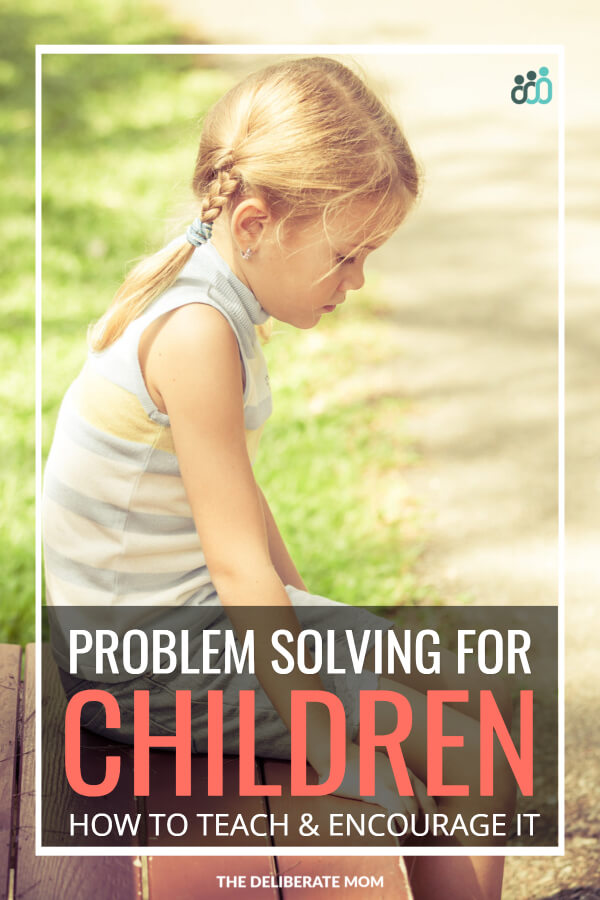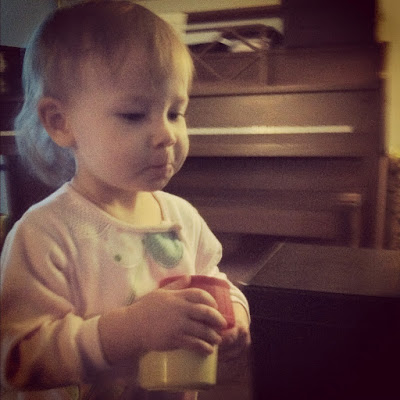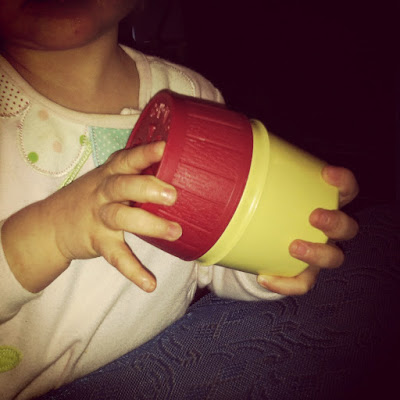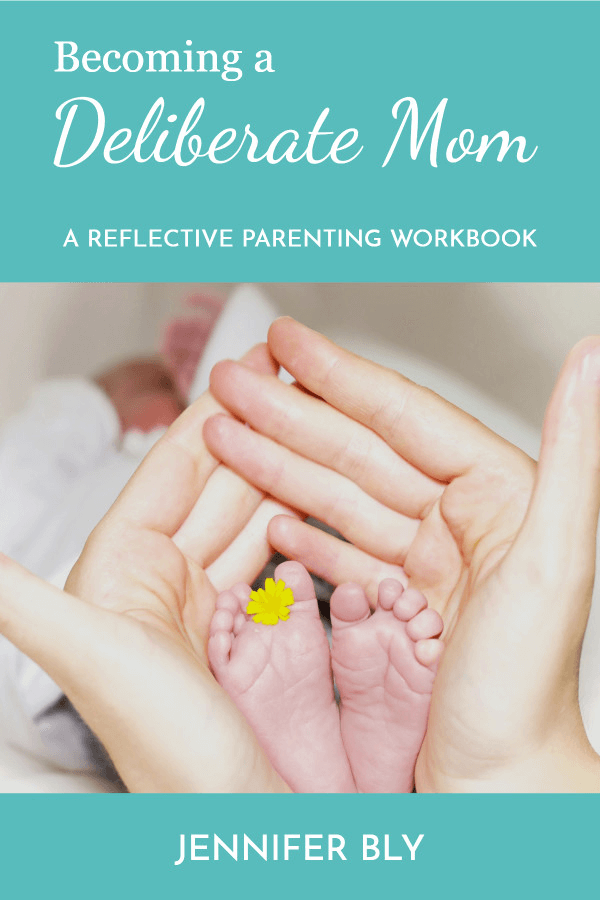Sometimes as parents we don’t know what to do when our children have problems. We see them struggling. We want to help but how do we help in a way that doesn’t “rescue” them from their problems. Here is the best way to teach your child problem solving skills.
She cries that awful cry. As her mom I want to help her. I want to solve the problem for her. I want to make everything better.
My fourteen-month-old picks the red cup up and places it back on top of the yellow measuring cup. She’s satisfied that it’s where she wants it to be but then it falls off again. Her contentment immediately turns to distress and frustration.
I see the solution. If only she would turn the red cup around and place it in the yellow cup, the problem would be solved… but she needs to figure this out. This is her problem to solve.
I am nearby. I am on the floor beside her. Watching. Waiting. Reassuring. The red cup falls off again. When she looks at me, I tell her… “That’s frustrating, the red cup won’t stay on.”
She grumbles and cries a bit until she has the red cup positioned once again.
I can tell by her persistence that this is a very important task for her.
It’s hard to watch your children struggle with something. You want to help. You want to fix things for them but what does that accomplish?
I’m comfortable with letting my children solve their own problems. This simple practice of balancing a cup, may in twenty years, lead to my daughter having the confidence to deal with a difficult situation in her life.
She is capable.
She is competent.
She will figure things out.
My love for her is not shown in solving her problems for her but in supporting her and loving her through the difficult task of solving her own problems.
Whereas the care-giver encourages dependency by assuming an active role, such as rescuing a child in distress or helping him to solve his problems, the educarer waits to see if the child is capable of consoling himself and solving his own problems, thus encouraging autonomy (Magda Gerber, 1980).
After about ten minutes of struggle, she still hadn’t figured out how to balance the red cup and she’s moved onto something else.
This week’s parenting “magic” is in realizing that I’m not here to solve my children’s problems. The magic is also in tomorrow, when she will “find” the yellow measuring cup and red cup in her playroom and I will be there too… supporting her as she tries to figure this problem out.

Gerber, M. 1980. Educaring. Retrieved from: http://www.magdagerber.org/vol-i-no-2-spring-1980.html











One of the toughest moments a mom can have…letting them learn on their on because we always want to fix things.
So incredibly important.
GREAT job…
Yes! I wrote about a similar situation and the reason behind it last week! http://likemamalikedaughter.blogspot.com/2012/09/let-them-do-it-by-myself.html
I love the second to last paragraph especially, the butterfly effect of letting them figure it for themselves!
“She is capable. She is competent. She will figure things out. My love for her is not shown in solving her problems for her but in supporting her and loving her through the difficult task of solving her own problems.”
I loved the confidence in these statements. This is something that I struggle with as a parent. It doesn’t come naturally to me, but I do (quite) diligently work on it, keeping it in the back of my mind. It also helps having a husband around who gently reminds me “she/he can do it… at least let her/him try, babe…”.
For me, it started when my two oldest were diagnosed with ASD and my heart was breaking for them everyday, watching my daughter (especially) struggle to just regain the skills that she once had. At home, I knew how to parent them in alignment with what we wanted. But in public, it was difficult for me to see them struggle to keep up with their peers. It was difficult to feel like my children were being judged, that I was being judged, and to feel this overwhelming need to explain my children’s behavior. “I’m sorry, she is non-verbal… I’m sorry, he misunderstood…” So I started intervening when I didn’t even need to, just to avoid it. After so long, I stopped taking them altogether; not because they couldn’t handle it, but because I couldn’t.
Years and 4 more kids later, I am a lot better at letting them figure things out, letting them solve their own problems, but I know I could do a lot better. Sometimes at night, as I’m reviewing my day, I know that the inherent message I sent was that they are not competent, they are not capable. And it sucks. Because in reality, they are.
Thank you for this, Jennifer…
This is so true ! I go through the same scenario with my 15 month old girl too and yes she will have to learn to solve it patiently through practice but mummy cringe everythime she is frustrated and letting out a cry or two coz she was frustrated. I just sat beside her pretend I was not looking at her but just talking to her and explaining to her how to do it verbally. I think through time she will learn eventually by herself. Love your post! give me encouragement to know that there a people out there having the same experience as me. Merci for sharing
What a wonderful post, and so true! Often in our desire to protect our children we don’t see that some things are better learned on their own. Thank you for ponting out this idea!
Maria
http://www.musicteachingandparenting.com
Thank you Maria. I truly believe children need the opportunity to problem solve without their parents intervening for them. It’s a basic skill that we sometimes overlook… especially when it comes to infants and toddlers.
Thanks for visiting.